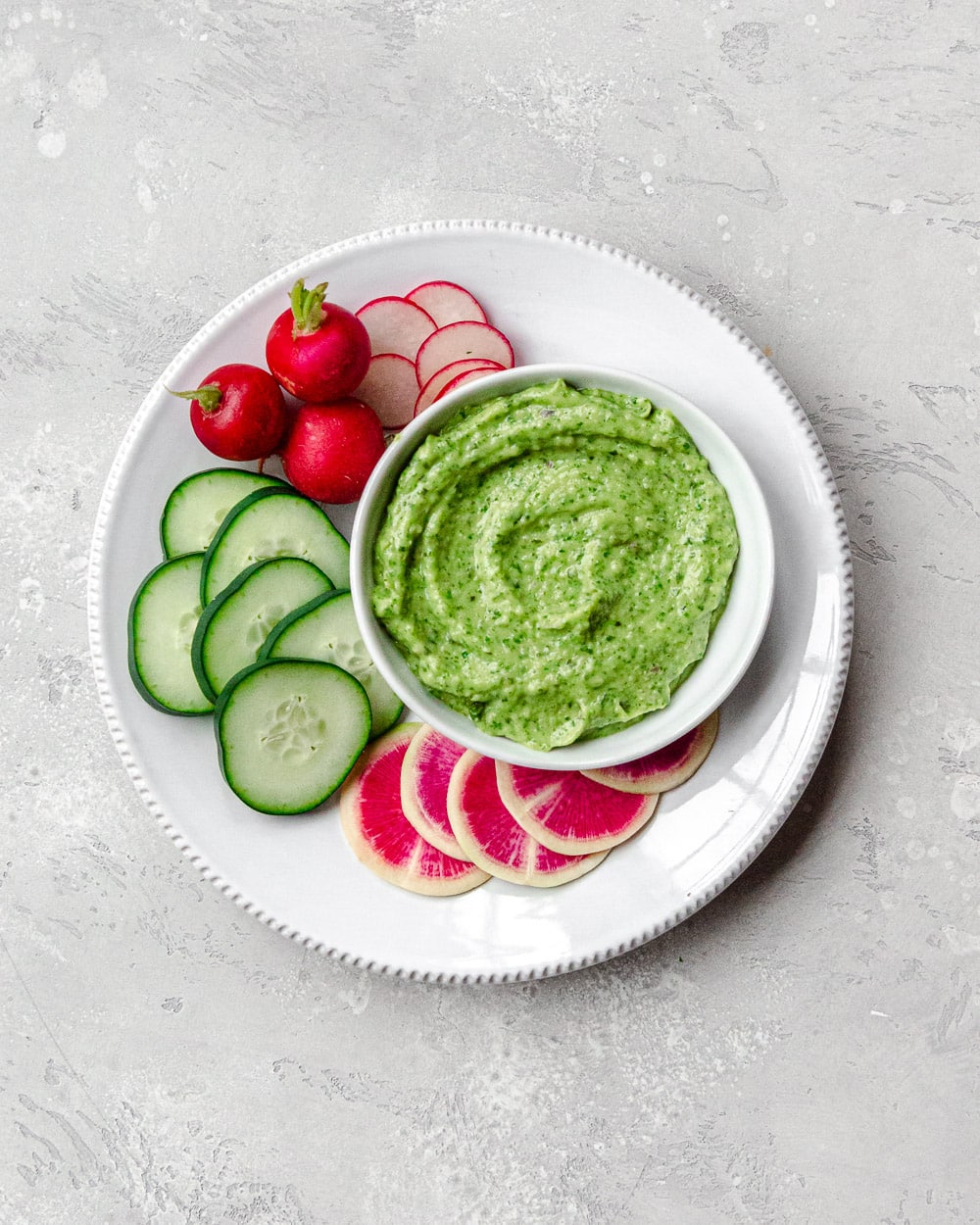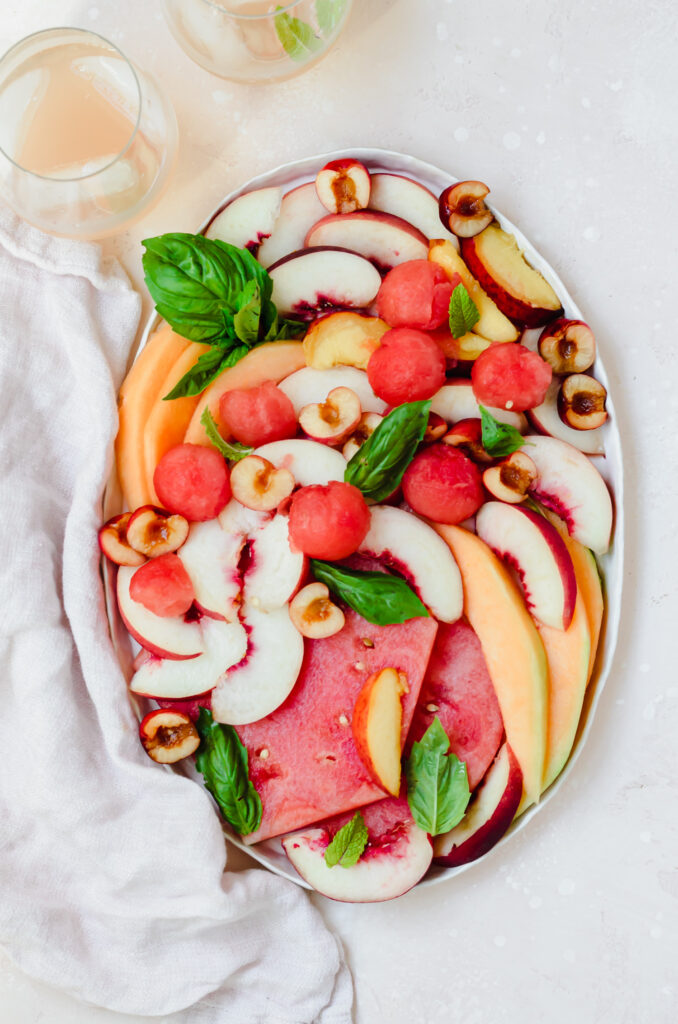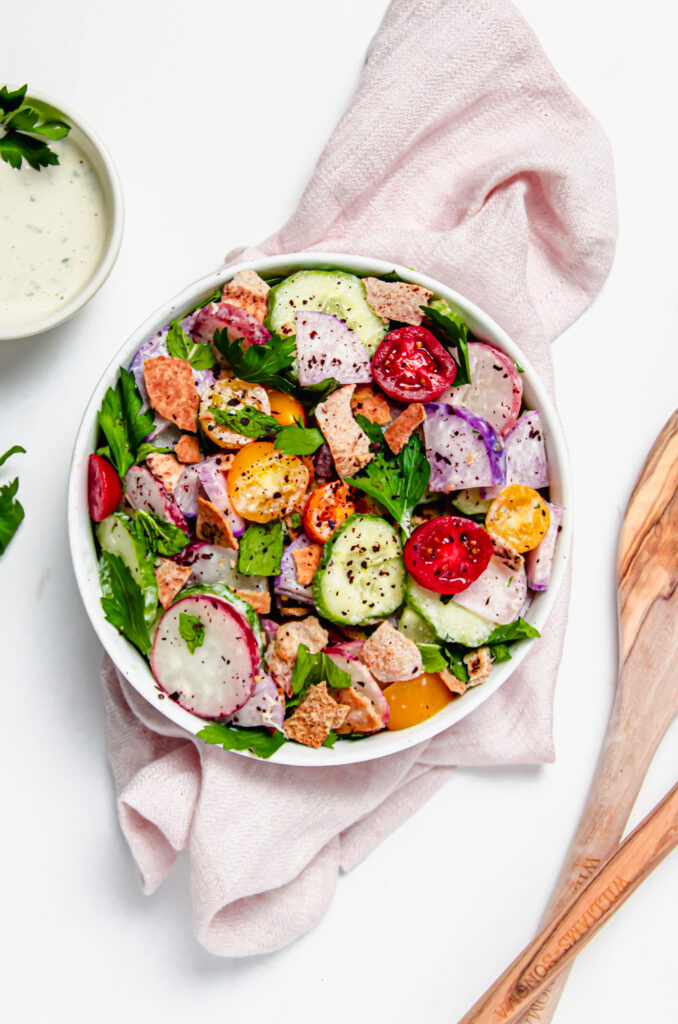Good nutrition is truly the foundation of good health and hormone balance. Read below for my recommended nutrition principles to help properly fuel your body.

The energy and nutrients you obtain from your diet provides the materials your body needs to produce hormones and properly fuel your body.
Eat Beautifully is not about any one diet but is rooted in the power of fiber-rich plant foods, sufficient protein, plus fermented foods. My philosophy is that a well-rounded diet with a variety of foods, that supports a healthy microbiome and that doesn’t eliminate food groups (unless you have sensitivities) will give your body the nutrients needed to thrive.
Eating a diet which includes whole, nutrient-dense, nourishing foods has been shown to enhance our hormone health and optimize our bodies’ functions. A good diet provides us with the essential vitamins, minerals and fats and phytochemicals that support:
- proper hormone function;
- immunity from disease;
- heart health;
- healthy metabolism;
- quality sleep and energy;
- cognition;
- skin health;
- how we age
Every time you eat its an opportunity to do something positive for your body. Below are the nutritional principles of “Eat Beautifully”. I promise that if you start to be more mindful about your approach to eating, you will see positive changes in your body, your skin, your mind and your mood!

1. Prioritize Protein
Protein is an essential structural component of all hormones. Sufficient protein will also help boost metabolism, increase fat burning and will help repair, build and maintain muscle. Getting sufficient protein is also critical as we age. As you get older you progressively lose muscle mass. Keeping muscle mass is also critical for hormone health as your muscles act as a “sponge” for glucose, helping to keep you from becoming insulin resistant. It is important to understand that not all protein is created equal. Prioritize grass-fed, lean meats, wild-caught, low mercury fish, pasture-raised chicken, turkey and eggs and organic non-GMO tofu and tempeh. Aim for 1 gram of protein per pound of your goal body weight.
2. Eat Your Greens
Green leafy vegetables (e.g., kale, spinach, romaine, chard, arugula) are one of the most essential foods for good health. Greens are the most nutrient dense foods on the planet. This is the most important food you should try to eat everyday. At LEAST 3 cups. Put a handful of baby spinach in your smoothie, have a salad at lunch or before dinner, sauté some greens with dinner. Its not as hard as you think!
3. Drink and Eat Your Water
Water is an essential element that is essential for our cells. Being dehydrated can affect all aspects of our health from energy, to moods to our skin. Before you do anything in the morning, start your day with at least 16 ounces of water (preferably room temperature with lemon). While you often hear about drinking “8 cups a day” consuming water-rich plants and fruits – like cucumber, watermelon, lettuce and berries – is another way to stay hydrated. Plus, by eating water-rich fruits and vegetables, you are not only staying hydrated but are filling our bodies nutrients, vitamins and minerals that are digested more slowly.
4. Consume Healthy Fats
Dietary fats are essential for helping the body absorb fat-soluble nutrients. They also keep you more full because they take longer for your body to break down. Healthy fats also contribute to better skin and help support our brain function. Try to eat “whole food fats” such as avocados, nuts, flax seed, chia seed and hemp seed. Only use oil that comes from whole-plant sources such as cold-pressed olive oil, avocado oil or virgin unprocessed coconut oil.
5. Eat the Rainbow
The more colors you eat, the wider array of nutrients you are getting. Plant pigments are not just to add pretty color, they are sources of anti-aging and disease-preventative antioxidants and phytonutrients. These are nutrients you can ONLY get from plants. You cannot get the same health benefits from eating a poor diet and then taking a multi-vitamin. At every meal look for ways to incorporate different colors into your plate.
6. Limit Added Sugars
Excess sugar is a major contributor to chronic disease. Sugar slows down the body’s ability to burn fat, slows metabolism and drives inflammation in the body (which can lead to disease or skin disorders such as acne). It is not the sugar in fruit, that you add when cooking or in the occasional snack, but the sugar found in processed foods and sodas/beverages that you should try to avoid. Added sugar should be limited to 25 grams (or 6 teaspoons/day) and even less for children. It is important to read labels and look at added sugar as it can sneak into foods very easily.
7. Prioritize Whole Foods
Ultra processed foods are engineered to be addictive, nutrient-depleted and are filled with refined sugars, refined flours, oils, chemical additives and preservatives which mess with your body’s natural signals and are leading to metabolic diseases. Try to crowd out these foods in your diet with whole ones. Examples of these include whole grains (grains that are intact like quinoa and farro as opposed to bread), whole fruits and vegetables, and foods with no additives and preservatives. You should try to prioritize foods only found in nature.
8. Feed Your Gut
The bacteria in our guts (which outnumber our cells 10 to 1!) not only digest food but the affects our brains, how we fight off illness, our metabolism, digestion, skin health, hormones and even mental health. Following the aforementioned steps all help support your gut health. Also try to incorporate a fermented (probiotic) food once a day, such as a few bites of kimchi or kefir, and I promise your body will get what it needs to feel its best! Read more about the microbiome here.


